- Home
- Jack London
The Iron Heel Page 18
The Iron Heel Read online
Page 18
CHAPTER XVI
THE END
When it came time for Ernest and me to go to Washington, father did notaccompany us. He had become enamoured of proletarian life. He lookedupon our slum neighborhood as a great sociological laboratory, andhe had embarked upon an apparently endless orgy of investigation. Hechummed with the laborers, and was an intimate in scores of homes.Also, he worked at odd jobs, and the work was play as well as learnedinvestigation, for he delighted in it and was always returning home withcopious notes and bubbling over with new adventures. He was the perfectscientist.
There was no need for his working at all, because Ernest managed to earnenough from his translating to take care of the three of us. But fatherinsisted on pursuing his favorite phantom, and a protean phantom it was,judging from the jobs he worked at. I shall never forget the evening hebrought home his street pedler's outfit of shoe-laces and suspenders,nor the time I went into the little corner grocery to make some purchaseand had him wait on me. After that I was not surprised when he tendedbar for a week in the saloon across the street. He worked as a nightwatchman, hawked potatoes on the street, pasted labels in a cannerywarehouse, was utility man in a paper-box factory, and water-carrierfor a street railway construction gang, and even joined the Dishwashers'Union just before it fell to pieces.
I think the Bishop's example, so far as wearing apparel was concerned,must have fascinated father, for he wore the cheap cotton shirt of thelaborer and the overalls with the narrow strap about the hips. Yet onehabit remained to him from the old life; he always dressed for dinner,or supper, rather.
I could be happy anywhere with Ernest; and father's happiness in ourchanged circumstances rounded out my own happiness.
"When I was a boy," father said, "I was very curious. I wanted to knowwhy things were and how they came to pass. That was why I became aphysicist. The life in me to-day is just as curious as it was in myboyhood, and it's the being curious that makes life worth living."
Sometimes he ventured north of Market Street into the shopping andtheatre district, where he sold papers, ran errands, and opened cabs.There, one day, closing a cab, he encountered Mr. Wickson. In high gleefather described the incident to us that evening.
"Wickson looked at me sharply when I closed the door on him, andmuttered, 'Well, I'll be damned.' Just like that he said it, 'Well, I'llbe damned.' His face turned red and he was so confused that he forgot totip me. But he must have recovered himself quickly, for the cab hadn'tgone fifty feet before it turned around and came back. He leaned out ofthe door.
"'Look here, Professor,' he said, 'this is too much. What can I do foryou?'
"'I closed the cab door for you,' I answered. 'According to commoncustom you might give me a dime.'
"'Bother that!' he snorted. 'I mean something substantial.'
"He was certainly serious--a twinge of ossified conscience or something;and so I considered with grave deliberation for a moment.
"His face was quite expectant when I began my answer, but you shouldhave seen it when I finished.
"'You might give me back my home,' I said, 'and my stock in the SierraMills.'"
Father paused.
"What did he say?" I questioned eagerly.
"What could he say? He said nothing. But I said. 'I hope you are happy.'He looked at me curiously. 'Tell me, are you happy?'" I asked.
"He ordered the cabman to drive on, and went away swearing horribly. Andhe didn't give me the dime, much less the home and stock; so you see, mydear, your father's street-arab career is beset with disappointments."
And so it was that father kept on at our Pell Street quarters, whileErnest and I went to Washington. Except for the final consummation, theold order had passed away, and the final consummation was nearer thanI dreamed. Contrary to our expectation, no obstacles were raised toprevent the socialist Congressmen from taking their seats. Everythingwent smoothly, and I laughed at Ernest when he looked upon the verysmoothness as something ominous.
We found our socialist comrades confident, optimistic of their strengthand of the things they would accomplish. A few Grangers who had beenelected to Congress increased our strength, and an elaborate programmeof what was to be done was prepared by the united forces. In all ofwhich Ernest joined loyally and energetically, though he could notforbear, now and again, from saying, apropos of nothing in particular,"When it comes to powder, chemical mixtures are better than mechanicalmixtures, you take my word."
The trouble arose first with the Grangers in the various states they hadcaptured at the last election. There were a dozen of these states, butthe Grangers who had been elected were not permitted to take office. Theincumbents refused to get out. It was very simple. They merely chargedillegality in the elections and wrapped up the whole situation in theinterminable red tape of the law. The Grangers were powerless. Thecourts were in the hands of their enemies.
This was the moment of danger. If the cheated Grangers became violent,all was lost. How we socialists worked to hold them back! There weredays and nights when Ernest never closed his eyes in sleep. The bigleaders of the Grangers saw the peril and were with us to a man. Butit was all of no avail. The Oligarchy wanted violence, and it setits agents-provocateurs to work. Without discussion, it was theagents-provocateurs who caused the Peasant Revolt.
In a dozen states the revolt flared up. The expropriated farmerstook forcible possession of the state governments. Of course this wasunconstitutional, and of course the United States put its soldiers intothe field. Everywhere the agents-provocateurs urged the people on. Theseemissaries of the Iron Heel disguised themselves as artisans, farmers,and farm laborers. In Sacramento, the capital of California, theGrangers had succeeded in maintaining order. Thousands of secret agentswere rushed to the devoted city. In mobs composed wholly of themselves,they fired and looted buildings and factories. They worked the peopleup until they joined them in the pillage. Liquor in large quantities wasdistributed among the slum classes further to inflame their minds. Andthen, when all was ready, appeared upon the scene the soldiers of theUnited States, who were, in reality, the soldiers of the Iron Heel.Eleven thousand men, women, and children were shot down on the streetsof Sacramento or murdered in their houses. The national government tookpossession of the state government, and all was over for California.
And as with California, so elsewhere. Every Granger state was ravagedwith violence and washed in blood. First, disorder was precipitated bythe secret agents and the Black Hundreds, then the troops were calledout. Rioting and mob-rule reigned throughout the rural districts. Dayand night the smoke of burning farms, warehouses, villages, and citiesfilled the sky. Dynamite appeared. Railroad bridges and tunnels wereblown up and trains were wrecked. The poor farmers were shot and hangedin great numbers. Reprisals were bitter, and many plutocrats and armyofficers were murdered. Blood and vengeance were in men's hearts. Theregular troops fought the farmers as savagely as had they been Indians.And the regular troops had cause. Twenty-eight hundred of them had beenannihilated in a tremendous series of dynamite explosions in Oregon,and in a similar manner, a number of train loads, at different times andplaces, had been destroyed. So it was that the regular troops fought fortheir lives as well as did the farmers.
As for the militia, the militia law of 1903 was put into effect, and theworkers of one state were compelled, under pain of death, to shoot downtheir comrade-workers in other states. Of course, the militia law didnot work smoothly at first. Many militia officers were murdered, andmany militiamen were executed by drumhead court martial. Ernest'sprophecy was strikingly fulfilled in the cases of Mr. Kowalt and Mr.Asmunsen. Both were eligible for the militia, and both were drafted toserve in the punitive expedition that was despatched from Californiaagainst the farmers of Missouri. Mr. Kowalt and Mr. Asmunsen refused toserve. They were given short shrift. Drumhead court martial was theirportion, and military execution their end. They were shot with theirbacks to the firing squad.
Many young men fled into the mountains to escape serving in t
he militia.There they became outlaws, and it was not until more peaceful times thatthey received their punishment. It was drastic. The government issued aproclamation for all law-abiding citizens to come in from the mountainsfor a period of three months. When the proclaimed date arrived, half amillion soldiers were sent into the mountainous districts everywhere.There was no investigation, no trial. Wherever a man was encountered, hewas shot down on the spot. The troops operated on the basis that noman not an outlaw remained in the mountains. Some bands, in strongpositions, fought gallantly, but in the end every deserter from themilitia met death.
A more immediate lesson, however, was impressed on the minds of thepeople by the punishment meted out to the Kansas militia. The greatKansas Mutiny occurred at the very beginning of military operationsagainst the Grangers. Six thousand of the militia mutinied. They hadbeen for several weeks very turbulent and sullen, and for that reasonhad been kept in camp. Their open mutiny, however, was without doubtprecipitated by the agents-provocateurs.
On the night of the 22d of April they arose and murdered their officers,only a small remnant of the latter escaping. This was beyond the schemeof the Iron Heel, for the agents-provocateurs had done their work toowell. But everything was grist to the Iron Heel. It had prepared for theoutbreak, and the killing of so many officers gave it justification forwhat followed. As by magic, forty thousand soldiers of the regular armysurrounded the malcontents. It was a trap. The wretched militiamen foundthat their machine-guns had been tampered with, and that the cartridgesfrom the captured magazines did not fit their rifles. They hoisted thewhite flag of surrender, but it was ignored. There were no survivors.The entire six thousand were annihilated. Common shell and shrapnel werethrown in upon them from a distance, and, when, in their desperation,they charged the encircling lines, they were mowed down by themachine-guns. I talked with an eye-witness, and he said that the nearestany militiaman approached the machine-guns was a hundred and fiftyyards. The earth was carpeted with the slain, and a final charge ofcavalry, with trampling of horses' hoofs, revolvers, and sabres, crushedthe wounded into the ground.
Simultaneously with the destruction of the Grangers came the revoltof the coal miners. It was the expiring effort of organized labor.Three-quarters of a million of miners went out on strike. But theywere too widely scattered over the country to advantage from their ownstrength. They were segregated in their own districts and beaten intosubmission. This was the first great slave-drive. Pocock* won his spursas a slave-driver and earned the undying hatred of the proletariat.Countless attempts were made upon his life, but he seemed to bear acharmed existence. It was he who was responsible for the introductionof the Russian passport system among the miners, and the denial of theirright of removal from one part of the country to another.
* Albert Pocock, another of the notorious strike-breakers of earlier years, who, to the day of his death, successfully held all the coal-miners of the country to their task. He was succeeded by his son, Lewis Pocock, and for five generations this remarkable line of slave-drivers handled the coal mines. The elder Pocock, known as Pocock I., has been described as follows: "A long, lean head, semicircled by a fringe of brown and gray hair, with big cheek-bones and a heavy chin, . . . a pale face, lustreless gray eyes, a metallic voice, and a languid manner." He was born of humble parents, and began his career as a bartender. He next became a private detective for a street railway corporation, and by successive steps developed into a professional strikebreaker. Pocock V., the last of the line, was blown up in a pump-house by a bomb during a petty revolt of the miners in the Indian Territory. This occurred in 2073 A.D.
In the meantime, the socialists held firm. While the Grangers expired inflame and blood, and organized labor was disrupted, the socialistsheld their peace and perfected their secret organization. In vain theGrangers pleaded with us. We rightly contended that any revolt on ourpart was virtually suicide for the whole Revolution. The Iron Heel, atfirst dubious about dealing with the entire proletariat at one time, hadfound the work easier than it had expected, and would have asked nothingbetter than an uprising on our part. But we avoided the issue, in spiteof the fact that agents-provocateurs swarmed in our midst. In thoseearly days, the agents of the Iron Heel were clumsy in their methods.They had much to learn and in the meantime our Fighting Groups weededthem out. It was bitter, bloody work, but we were fighting for life andfor the Revolution, and we had to fight the enemy with its own weapons.Yet we were fair. No agent of the Iron Heel was executed without atrial. We may have made mistakes, but if so, very rarely. The bravest,and the most combative and self-sacrificing of our comrades went intothe Fighting Groups. Once, after ten years had passed, Ernest made acalculation from figures furnished by the chiefs of the Fighting Groups,and his conclusion was that the average life of a man or woman afterbecoming a member was five years. The comrades of the Fighting Groupswere heroes all, and the peculiar thing about it was that they wereopposed to the taking of life. They violated their own natures, yet theyloved liberty and knew of no sacrifice too great to make for the Cause.*
* These Fighting groups were modelled somewhat after the Fighting Organization of the Russian Revolution, and, despite the unceasing efforts of the Iron Heel, these groups persisted throughout the three centuries of its existence. Composed of men and women actuated by lofty purpose and unafraid to die, the Fighting Groups exercised tremendous influence and tempered the savage brutality of the rulers. Not alone was their work confined to unseen warfare with the secret agents of the Oligarchy. The oligarchs themselves were compelled to listen to the decrees of the Groups, and often, when they disobeyed, were punished by death--and likewise with the subordinates of the oligarchs, with the officers of the army and the leaders of the labor castes.
Stern justice was meted out by these organized avengers, but most remarkable was their passionless and judicial procedure. There were no snap judgments. When a man was captured he was given fair trial and opportunity for defence. Of necessity, many men were tried and condemned by proxy, as in the case of General Lampton. This occurred in 2138 A.D. Possibly the most bloodthirsty and malignant of all the mercenaries that ever served the Iron Heel, he was informed by the Fighting Groups that they had tried him, found him guilty, and condemned him to death--and this, after three warnings for him to cease from his ferocious treatment of the proletariat. After his condemnation he surrounded himself with a myriad protective devices. Years passed, and in vain the Fighting Groups strove to execute their decree. Comrade after comrade, men and women, failed in their attempts, and were cruelly executed by the Oligarchy. It was the case of General Lampton that revived crucifixion as a legal method of execution. But in the end the condemned man found his executioner in the form of a slender girl of seventeen, Madeline Provence, who, to accomplish her purpose, served two years in his palace as a seamstress to the household. She died in solitary confinement after horrible and prolonged torture; but to-day she stands in imperishable bronze in the Pantheon of Brotherhood in the wonder city of Serles.
We, who by personal experience know nothing of bloodshed, must not judge harshly the heroes of the Fighting Groups. They gave up their lives for humanity, no sacrifice was too great for them to accomplish, while inexorable necessity compelled them to bloody expression in an age of blood. The Fighting Groups constituted the one thorn in the side of the Iron Heel that the Iron Heel could never remove. Everhard was the father of this curious army, and its accomplishments and successful persistence for three hundred years bear witness to the wisdom with which he organized and the solid foundation he laid for the succeeding generations to build upon. In some respects, despite his great economic and sociological contributions, and his work as a general leader in the Revolution, his organization o
f the Fighting Groups must be regarded as his greatest achievement.
The task we set ourselves was threefold. First, the weeding out from ourcircles of the secret agents of the Oligarchy. Second, the organizingof the Fighting Groups, and outside of them, of the general secretorganization of the Revolution. And third, the introduction of our ownsecret agents into every branch of the Oligarchy--into the labor castesand especially among the telegraphers and secretaries and clerks, intothe army, the agents-provocateurs, and the slave-drivers. It was slowwork, and perilous, and often were our efforts rewarded with costlyfailures.
The Iron Heel had triumphed in open warfare, but we held our own in thenew warfare, strange and awful and subterranean, that we instituted.All was unseen, much was unguessed; the blind fought the blind; andyet through it all was order, purpose, control. We permeated theentire organization of the Iron Heel with our agents, while our ownorganization was permeated with the agents of the Iron Heel. It waswarfare dark and devious, replete with intrigue and conspiracy, plotand counterplot. And behind all, ever menacing, was death, violent andterrible. Men and women disappeared, our nearest and dearest comrades.We saw them to-day. To-morrow they were gone; we never saw them again,and we knew that they had died.
There was no trust, no confidence anywhere. The man who plotted besideus, for all we knew, might be an agent of the Iron Heel. We mined theorganization of the Iron Heel with our secret agents, and the Iron Heelcountermined with its secret agents inside its own organization. Andit was the same with our organization. And despite the absence ofconfidence and trust we were compelled to base our every effort onconfidence and trust. Often were we betrayed. Men were weak. The IronHeel could offer money, leisure, the joys and pleasures that waitedin the repose of the wonder cities. We could offer nothing but thesatisfaction of being faithful to a noble ideal. As for the rest, thewages of those who were loyal were unceasing peril, torture, and death.
Men were weak, I say, and because of their weakness we were compelled tomake the only other reward that was within our power. It was the rewardof death. Out of necessity we had to punish our traitors. For every manwho betrayed us, from one to a dozen faithful avengers were loosed uponhis heels. We might fail to carry out our decrees against our enemies,such as the Pococks, for instance; but the one thing we could not affordto fail in was the punishment of our own traitors. Comrades turnedtraitor by permission, in order to win to the wonder cities and thereexecute our sentences on the real traitors. In fact, so terrible didwe make ourselves, that it became a greater peril to betray us than toremain loyal to us.
The Revolution took on largely the character of religion. We worshippedat the shrine of the Revolution, which was the shrine of liberty. It wasthe divine flashing through us. Men and women devoted their lives tothe Cause, and new-born babes were sealed to it as of old they had beensealed to the service of God. We were lovers of Humanity.

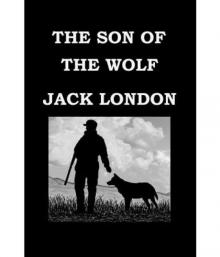 The Son of the Wolf
The Son of the Wolf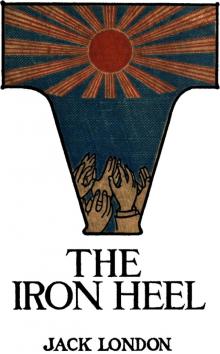 The Iron Heel
The Iron Heel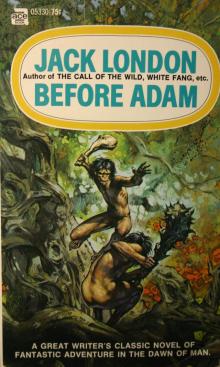 Before Adam
Before Adam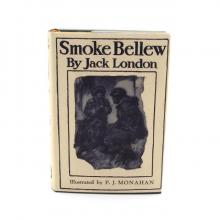 Smoke Bellew
Smoke Bellew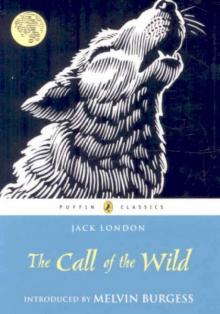 The Call of the Wild
The Call of the Wild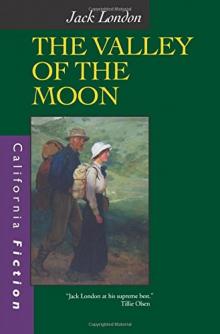 The Valley of the Moon Jack London
The Valley of the Moon Jack London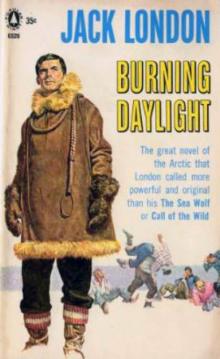 Burning Daylight
Burning Daylight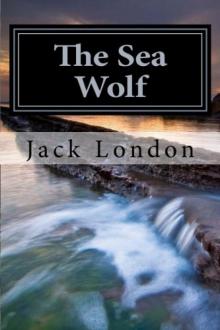 The Sea Wolf
The Sea Wolf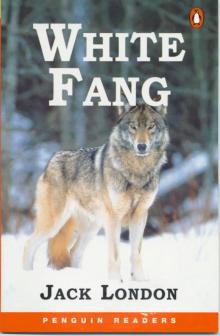 White Fang
White Fang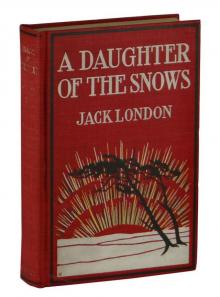 A Daughter of the Snows
A Daughter of the Snows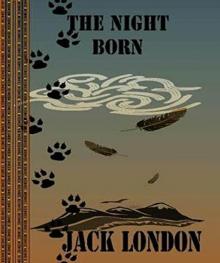 The Night-Born
The Night-Born A Son Of The Sun
A Son Of The Sun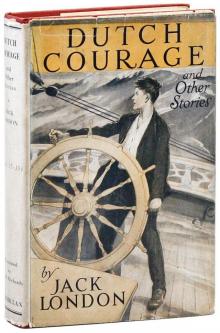 Dutch Courage and Other Stories
Dutch Courage and Other Stories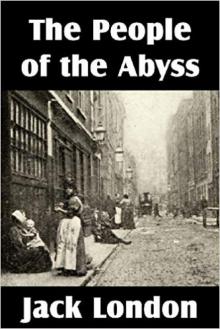 The People of the Abyss
The People of the Abyss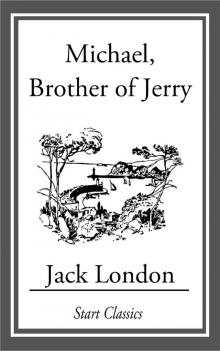 Michael, Brother of Jerry
Michael, Brother of Jerry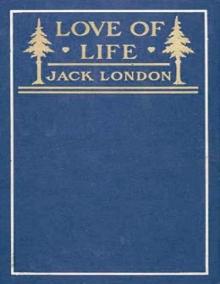 Love of Life, and Other Stories
Love of Life, and Other Stories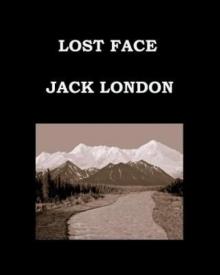 Lost Face
Lost Face The Road
The Road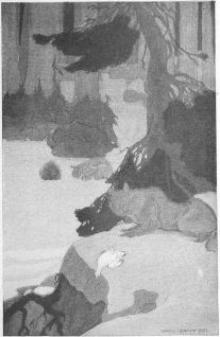 Love of Life
Love of Life The Turtles of Tasman
The Turtles of Tasman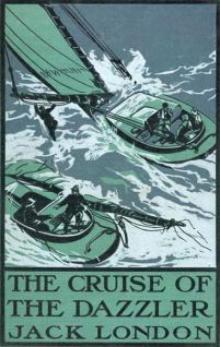 The Cruise of The Dazzler
The Cruise of The Dazzler The Heathen
The Heathen The Scab
The Scab The Faith of Men
The Faith of Men Adventure
Adventure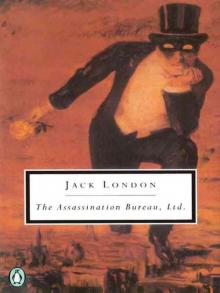 The Assassination Bureau, Ltd.
The Assassination Bureau, Ltd.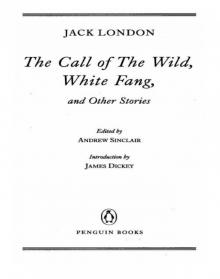 The Call of the Wild, White Fang, and Other Stories
The Call of the Wild, White Fang, and Other Stories The Call of the Wild and Selected Stories
The Call of the Wild and Selected Stories Jerry of the Islands
Jerry of the Islands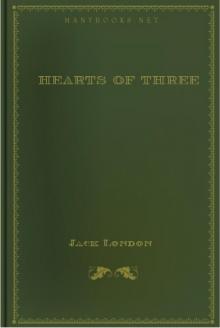 Hearts of Three
Hearts of Three The House of Pride
The House of Pride Moon-Face and Other Stories
Moon-Face and Other Stories Children of the Frost
Children of the Frost South Sea Tales
South Sea Tales The Strength of the Strong
The Strength of the Strong The Jacket (The Star-Rover)
The Jacket (The Star-Rover) The Little Lady of the Big House
The Little Lady of the Big House John Barleycorn
John Barleycorn ADaugter of Snows
ADaugter of Snows The Mutiny of the Elsinore
The Mutiny of the Elsinore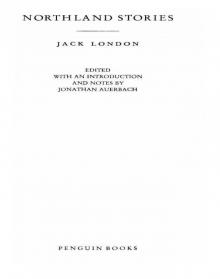 Northland Stories
Northland Stories Tales of the Fish Patrol
Tales of the Fish Patrol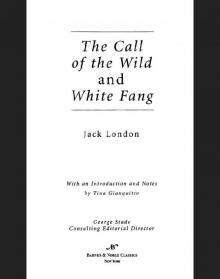 Call of the Wild and White Fang (Barnes & Noble Classics Series)
Call of the Wild and White Fang (Barnes & Noble Classics Series) The Valley of the Moon
The Valley of the Moon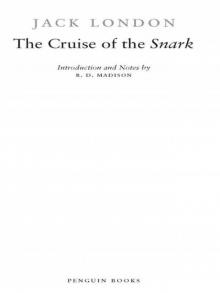 The Cruise of the Snark
The Cruise of the Snark The Game
The Game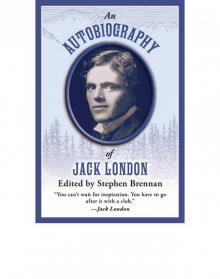 An Autobiography of Jack London
An Autobiography of Jack London